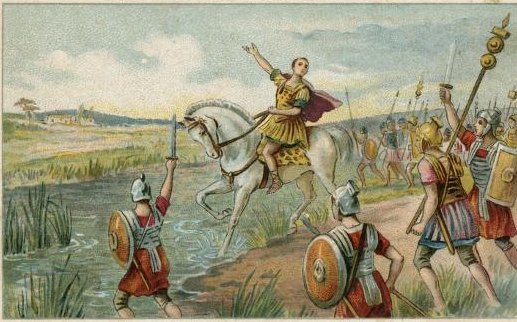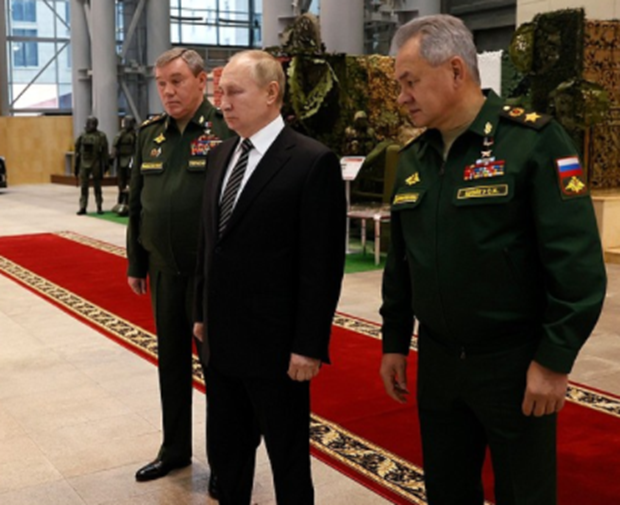

By John Helmer, Moscow
@bears_with
Nations don’t agree to the instrument of capitulation to their conquerors without turncoat Quislings, Lavals, or Sadats to sign.
It happened in Russia, and for the first time on December 21, 2021, in front of the Stavka and the assembled officers of the Russian armed forces, President Vladimir Putin said so.
“Do you remember how it happened?” he asked them. “All of you are adults. It happened at a time when Russia’s relations with the United States and main member states of NATO were cloudless, if not completely allied. I have already said this in public and will remind you of this again: American specialists were permanently present at the nuclear arms facilities of the Russian Federation. They went to their office there every day, had desks and an American flag. Wasn’t this enough? What else is required? US advisors worked in the Russian Government, career CIA officers gave their advice. What else did they want?”
Putin did not have to add the names of the Russians who had signed their answer to that question – whatever you want. Their names are Mikhail Gorbachev; Boris Yeltsin; Yegor Gaidar; Anatoly Chubais; Alexei Kudrin.

Left to right: Mikhail Gorbachev; Boris Yeltsin, his chief of staff Anatoly Chubais; and his deputy, finance minister and Accounting Chamber chief still, Alexei Kudrin. For the story of the cutting of the Gordian Knot by Alexander the Great, read this.
Putin’s speech to the expanded Defence Ministry Board was followed swiftly by his telephone conversation with the new German Chancellor, Olaf Scholz; Putin initiated the call.
According to the Kremlin communiqué, they “spoke about the Russian proposals on long-term legally binding security guarantees that rule out any further expansion of NATO eastwards and the deployment of offensive weapons systems in the countries adjacent to Russia. In this context, detailed comments were provided on the content of the draft Russian-US treaty on security guarantees and the draft agreement on measures to ensure security of Russia and NATO member states, which were sent to Russia’s Western partners, including Germany. Hope was expressed that serious talks would be organised on all issues raised by Russia.”
“The problem of settling the domestic conflict in Ukraine was reviewed in detail at the request of the Federal Chancellor. Vladimir Putin gave an extensive update on the situation in this area, noting, in particular, that Kiev still refuses to honour its commitments under the 2015 Minsk agreements, which impedes the potential holding of a new summit in the Normandy format. It was agreed to continue exchanging views on the topics discussed and other international and bilateral issues during future contacts.”
The German communiqué was shorter. “The two discussed the state of bilateral relations. The Chancellor and the Russian President also discussed the increased Russian military presence in the Ukraine area. The Chancellor expressed his concern about the situation and spoke of the urgent need for de-escalation. The phone call also discussed the state of implementation of the Minsk agreements on the peaceful resolution of the conflict in eastern Ukraine. The Chancellor underlined the need to take forward the negotiations in the Normandy format. Chancellor Scholz and President Putin agreed to continue the exchange.”
Four days earlier, the Russian Foreign Ministry published the texts of the two security pacts for the US, Germany, and France to negotiate; click to read the texts and the analysis.

“We need at least something”, Putin told the Stavka before the entire Army, “at least a legally binding agreement rather than just verbal assurances. We know the worth of such verbal assurances, fine words and promises. Take the recent past, in the late 1980s and early 1990s, when we were told that our concerns about NATO’s potential expansion eastwards were absolutely groundless. And then we saw five waves of the bloc’s eastward expansion…”
The alternative to this something is not nothing.
“Here we are today, in a situation when we are forced to resolve it: After all, we cannot allow the scenario I mentioned. Is anyone unable to grasp this? This should be clear…I would like to emphasise again: we are not demanding any special exclusive terms for ourselves. Russia stands for equal and indivisible security in the whole of Eurasia. Naturally, as I have already noted, if our Western colleagues continue their obviously aggressive line, we will take appropriate military-technical reciprocal measures and will have a tough response to their unfriendly steps.”
And so across the Rubicon we go.











Leave a Reply